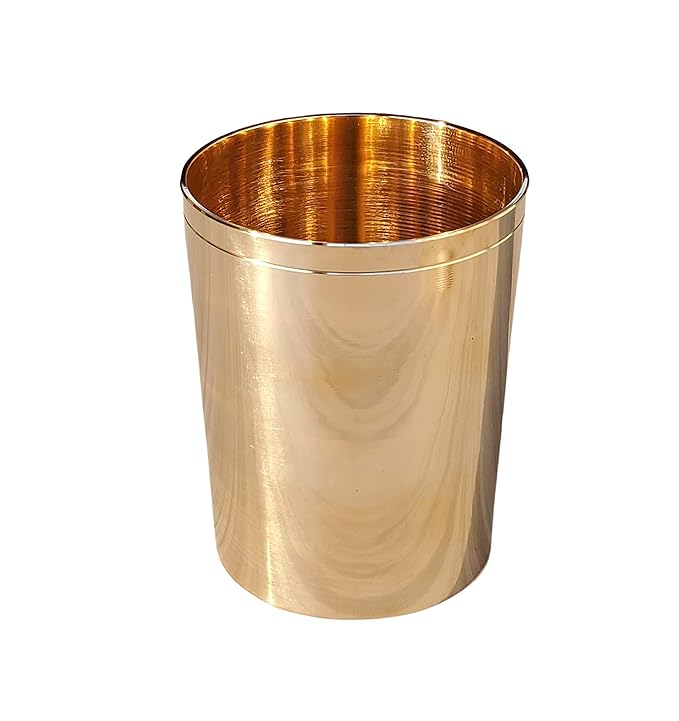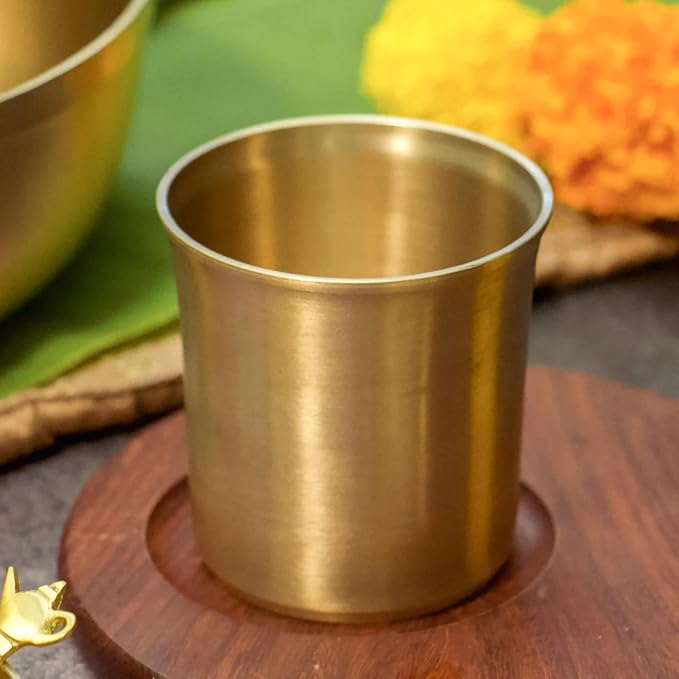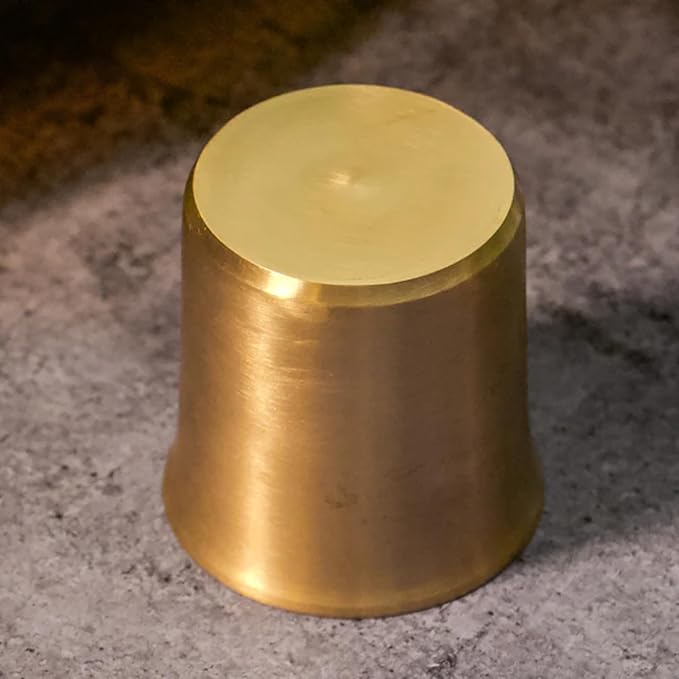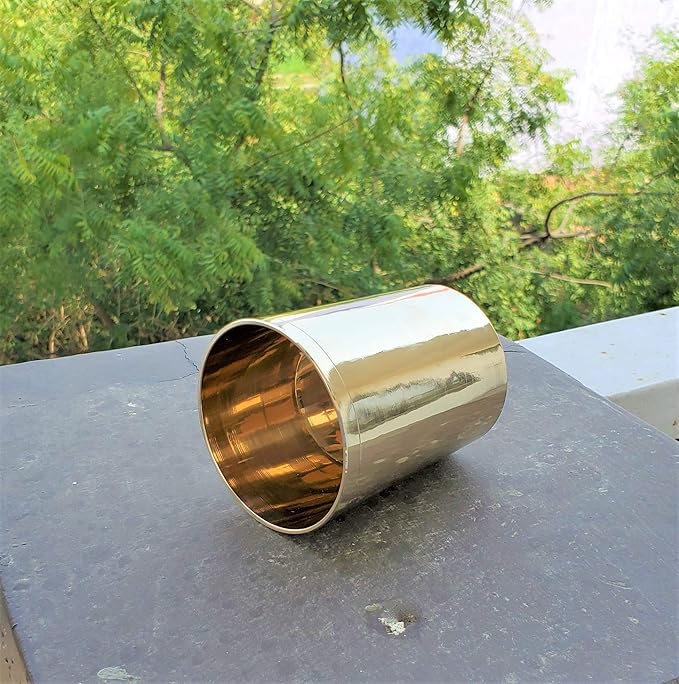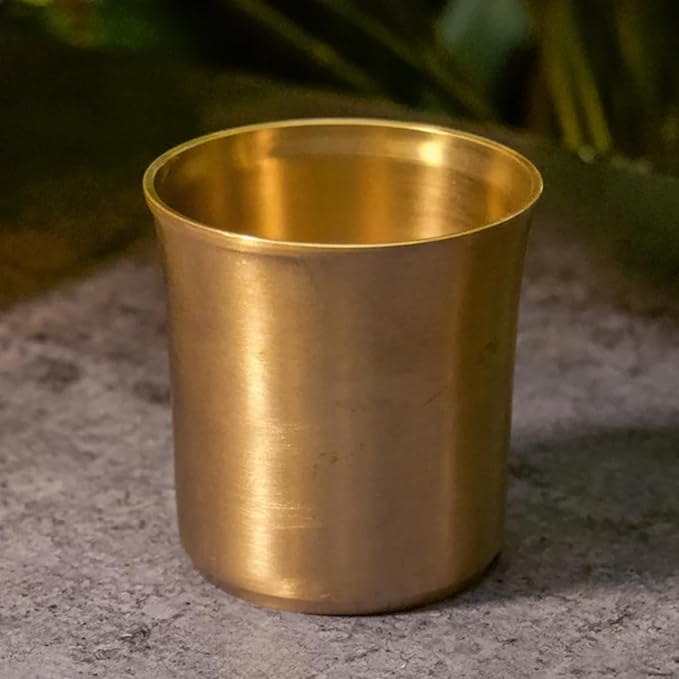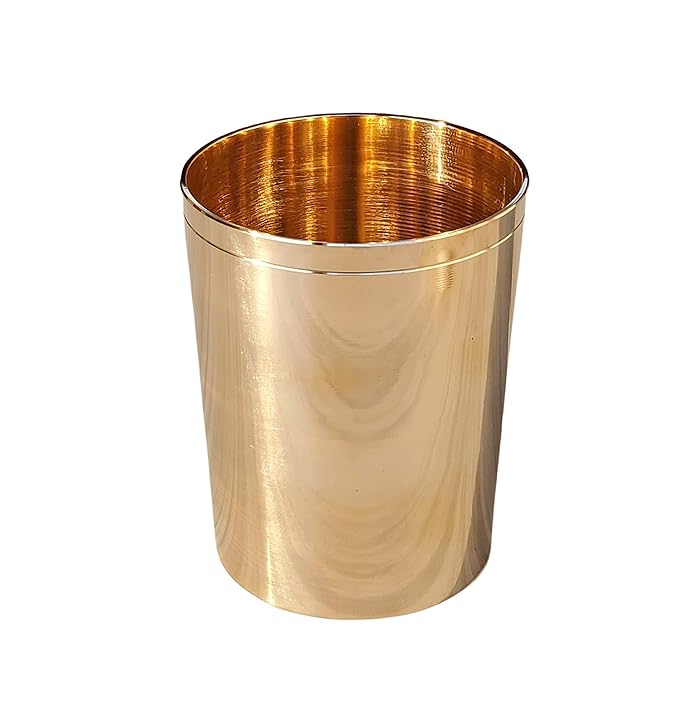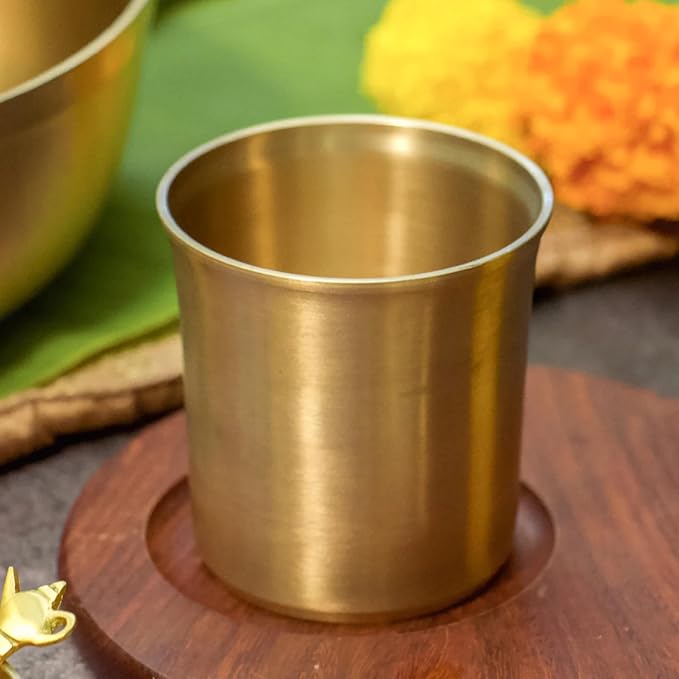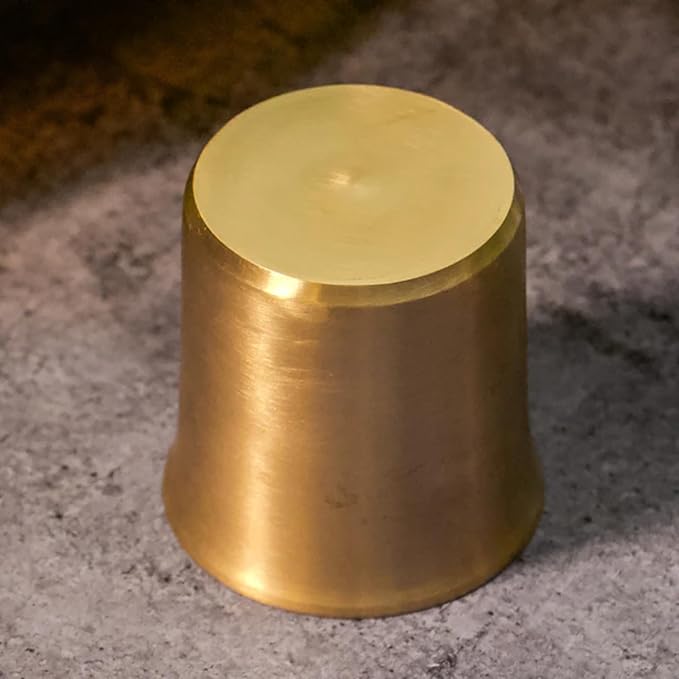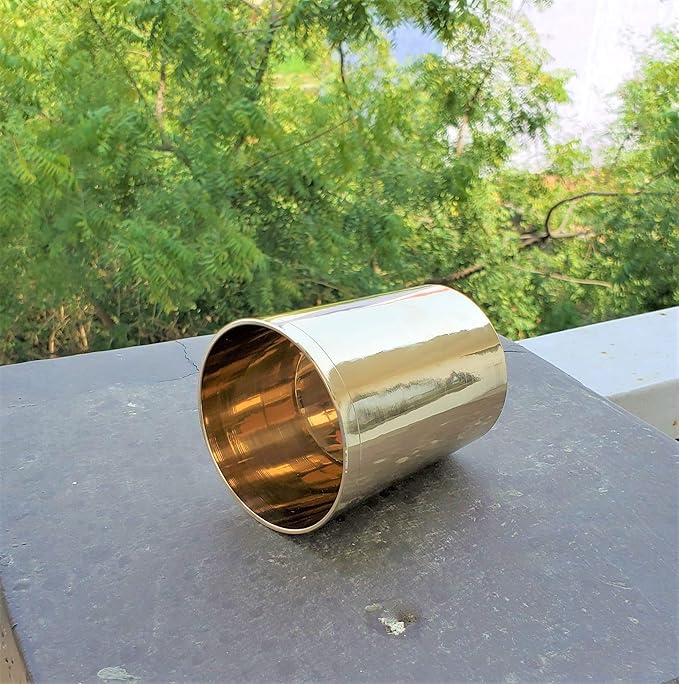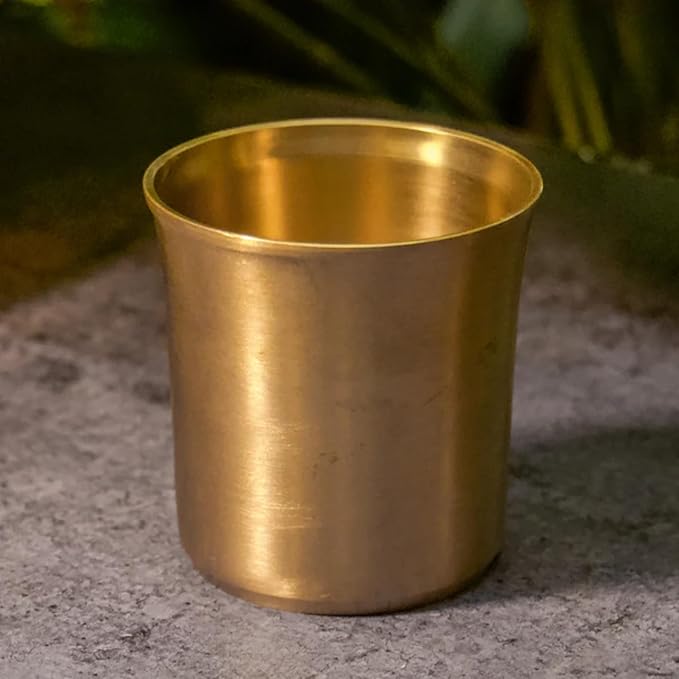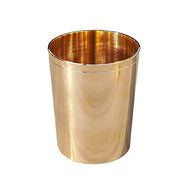Kansa Glass
Kansa Glass
Kansa Glass: The Ayurvedic Drinking Vessel
A Kansa Glass is a drinking tumbler made from Kansa, a traditional Indian alloy primarily composed of copper and tin. Revered in Ayurvedic tradition, Kansa glasses are used for drinking water and other beverages, with the belief that they offer numerous health and wellness benefits beyond that of ordinary glassware.
Material and Craftsmanship
- The Kansa Alloy: Kansa is an alloy typically made of approximately 78% copper and 22% tin. This specific ratio is crucial for its resonance (when used in bells) and its therapeutic properties as described in Ayurveda.
- Handcrafted Quality: Kansa glasses are often handcrafted by skilled artisans. The process can involve casting or hammering the metal into shape, resulting in unique pieces with a distinct artisanal charm.
- Distinctive Appearance: Kansa has a characteristic warm, golden-brown or reddish-brown hue. It often develops a natural patina over time with use and exposure to air, which is considered normal and adds to its vintage appeal.
Health Benefits (Ayurvedic Perspective)
In Ayurveda, Kansa is considered a metal that helps balance the body's energies (doshas) and possesses inherent therapeutic qualities. Drinking from a Kansa glass is believed to:
- Balance Tridoshas: Kansa is thought to pacify all three doshas—Vata, Pitta, and Kapha. It is particularly effective in balancing Pitta (associated with heat and acidity) and Kapha (associated with heaviness and congestion).
- Improve Digestion: Ayurveda suggests that Kansa stimulates digestive fire (Agni), aiding in better digestion, nutrient absorption, and metabolism.
- Detoxification: The metal is believed to help in cleansing the body by flushing out toxins (ama).
- Antimicrobial Action: Copper, a key component of Kansa, is known for its natural antimicrobial and antibacterial properties. Storing and drinking water from a Kansa glass is believed to help purify the water, potentially killing certain harmful bacteria.
- Calming Effect: The unique properties of Kansa are believed to have a calming effect on the mind and body, helping to reduce stress and anxiety.
- Oral Health: Some traditions suggest that drinking water from Kansa can contribute to better oral hygiene.
Usage and Cultural Significance
- Daily Hydration: Kansa glasses are traditionally used for drinking water, especially water that has been stored overnight in a Kansa vessel, a practice recommended in Ayurveda for optimal benefits.
- Serving Beverages: They can also be used for serving other beverages, enhancing the dining experience with their aesthetic appeal and perceived health benefits.
- Symbol of Tradition and Purity: Using Kansa glasses connects one to ancient Indian traditions and promotes a sense of purity and natural living.
- Durable and Sustainable: Kansa is a highly durable metal, and Kansa glasses can last for generations if properly cared for, making them an eco-friendly choice compared to disposable or less durable materials.
Care and Maintenance
- Cleaning: Kansa glasses should be cleaned gently. A paste made from tamarind pulp, lemon juice, or a mixture of baking soda and water can be used to remove tarnish.
- Soft Cloth: Always use a soft cloth for cleaning and drying to avoid scratching the surface.
- Avoid Abrasives: Harsh scrubbers, steel wool, and strong chemical cleaners should be avoided as they can damage the metal.
- Drying: Thoroughly dry the glass after washing to prevent water spots and minimize oxidation.
- Dishwasher: It is generally not recommended to clean Kansa glasses in a dishwasher.
In essence, a Kansa Glass is more than just a drinking vessel; it's a piece of functional art that embodies centuries of Ayurvedic wisdom, offering a blend of aesthetic beauty and potential health benefits for everyday use.
Couldn't load pickup availability
Get $20 off when you spend $1,000 or more! Learn more
Clients Love Us

“I am extremely happy about both design and comfort. I am a furniture designer myself, and your product makes me happy.”

“I am extremely happy about both design and comfort. I am a furniture designer myself, and your product makes me happy.”


